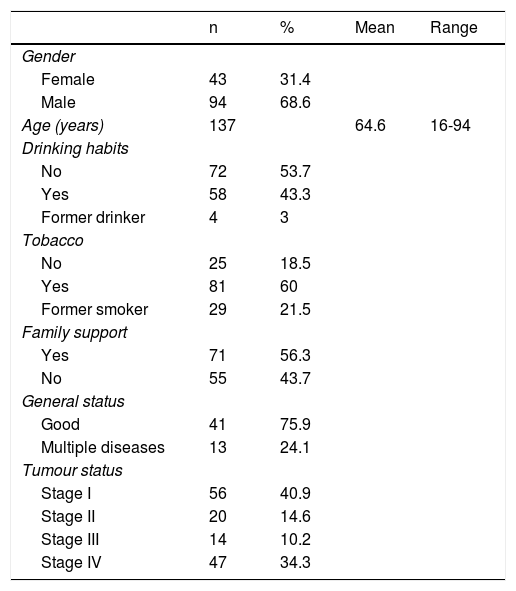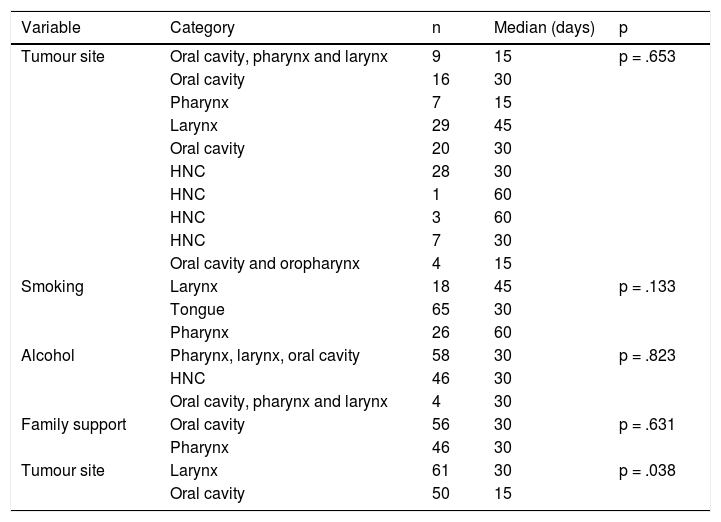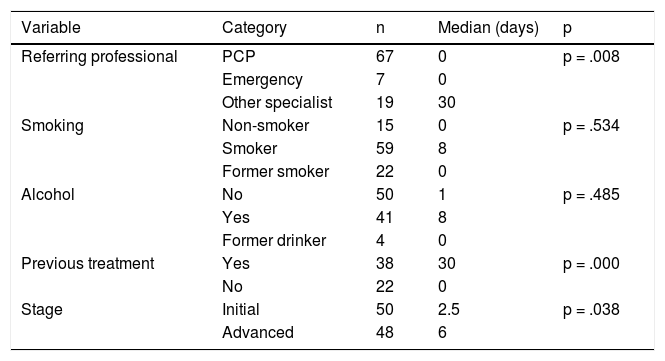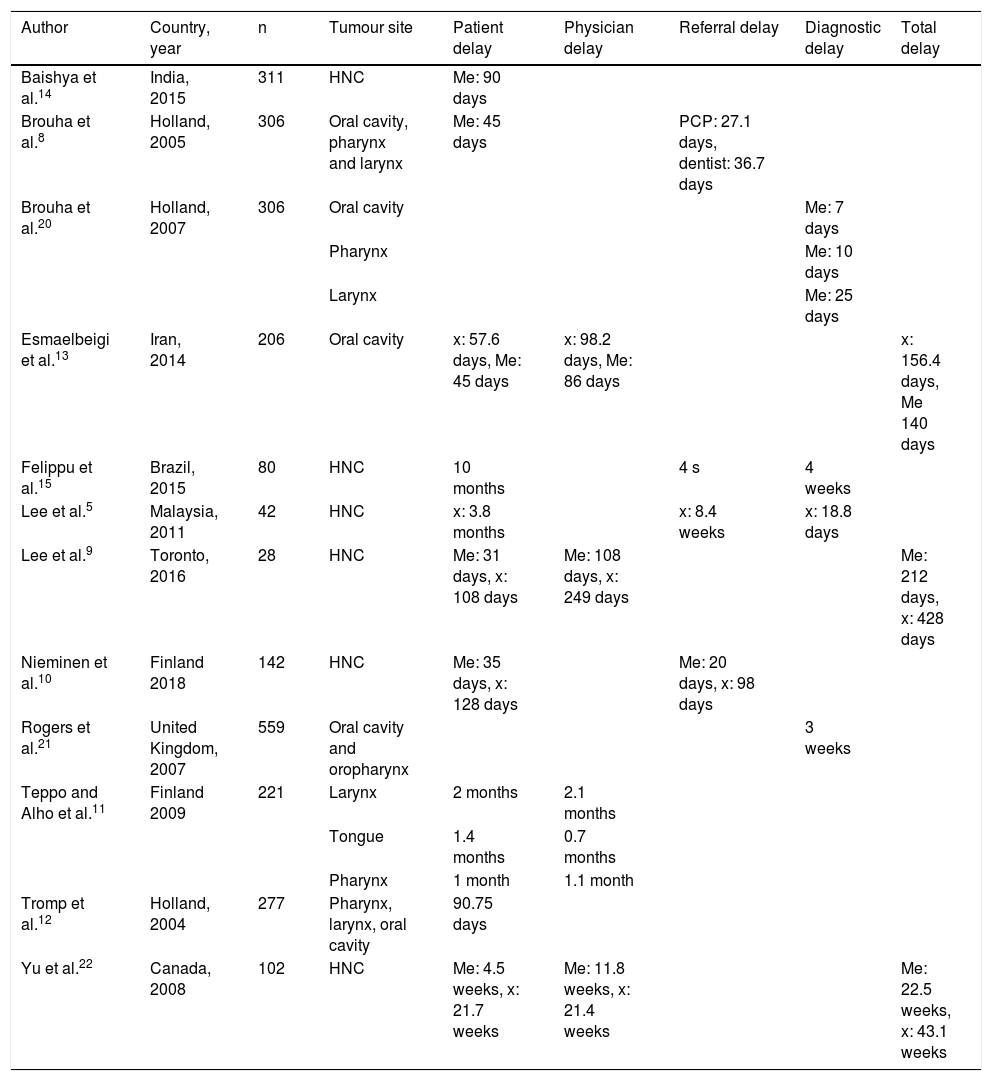Tumour stage is an important prognostic factor in head and neck tumours. Many tumours are diagnosed in advanced stages despite almost universal healthcare and their being symptomatic. This paper seeks to determine the diagnostic delay in head and neck tumours in our health department, to analyse factors associated with delay and if it is associated with diagnosis in advanced stages.
MethodsRetrospective study of 137 patients with head and neck cancer diagnosed from 2016-2018. Patient delay, delay in primary health care, delay in secondary health care, diagnostic delay and possible associated factors (smoking, location, stage, …) were evaluated.
ResultsMany patients (44.5%) were diagnosed in advanced stages. The median patient delay was 30 days. The median referral to otorhinolaryngology was 3.5 days. If the referral was made by another specialist (p = .008), the patients were under previous treatment (P=.000) and the tumours were in initial stages (P=.038) this delay was greater. The median from the first visit to otorhinolaryngology was 15 days, higher in regular referrals (43%) (P=.000). The median diagnostic delay was 12 days, higher in surgical biopsies (P=.000). The median professional delay was 58.5 days and total delay was 118.5 days.
ConclusionsMany head and neck tumours are diagnosed in advanced stages. A relationship was not found between diagnosis in advanced stages and diagnostic delay. However, steps must be taken to reduce these excessive delays.
El estadio tumoral al diagnóstico es clave en el pronóstico del cáncer de cabeza y cuello. Pese a un sistema sanitario casi universal y ser tumores generalmente sintomáticos, una gran proporción de tumores son diagnosticados en estadios avanzados. El objetivo es conocer el tiempo que se tarda en diagnosticar los tumores de cabeza y cuello en nuestro departamento de salud, analizar si existen factores asociados a su retraso y si este se asocia al diagnóstico en estadios avanzados.
MétodosEstudio retrospectivo de 137 pacientes con cáncer de cabeza y cuello diagnosticados de 2016-2018. Se evaluó la demora del paciente en la búsqueda de atención médica, en la prestación de la atención y en la obtención del diagnóstico, así como la existencia de factores asociados (tabaquismo, localización, estadio, etc.).
ResultadosEl 44,5% de los pacientes se diagnosticaron en estadios avanzados. Los pacientes tardaron en consultar una mediana de 30 días desde el inicio de los síntomas. Se tardó en derivar a Otorrinolaringología una mediana de 3,5 días. Se evidenció mayor retraso cuando la derivación la hacía otro especialista (p = 0,008), si recibieron tratamiento previo (antibiótico, antiinflamatorios no esteroideos, etc.) (p = 0,000) y en tumores en estadios iniciales (p = 0,038). En la consulta de Otorrinolaringología fueron valorados 15 días después de la derivación. Este tiempo fue mayor en el 43% de los tumores que fueron remitidos de forma ordinaria (p = 0,000). Se obtuvo el diagnóstico en 12 días desde la primera visita a Otorrinolaringología, mayor cuando se tomó la biopsia en quirófano (p = 0,000). La mediana de retraso médico fue de 58,5 días y el retraso total 118,5 días.
ConclusionesMuchos tumores de cabeza y cuello siguen diagnosticándose en estadios avanzados. No se ha encontrado relación entre el diagnóstico en estadios avanzados y la demora en el diagnóstico. Aun así, es necesario adoptar medidas para disminuir estas excesivas demoras.












